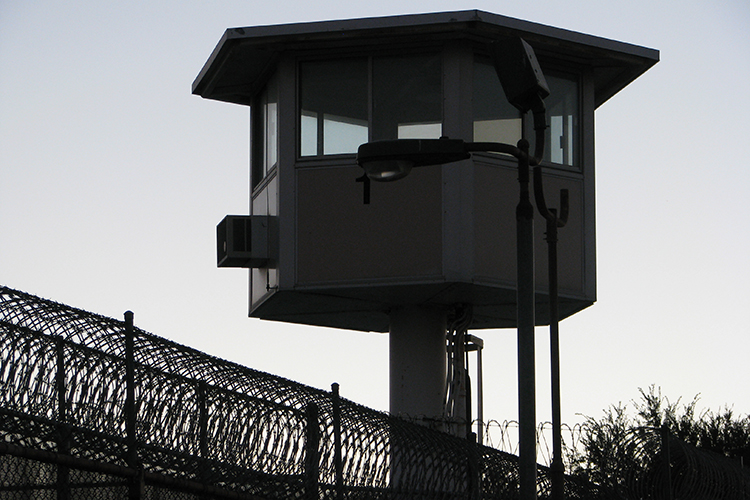Correctional officers at high risk for depression, PTSD, suicide, survey finds

California’s correctional officers are regularly exposed to traumatic events that make them more likely to grapple with depression, PTSD and suicidal thoughts, according to a new report released this week by researchers at UC Berkeley’s Goldman School of Public Policy. The first-of-its kind report is based on the 2017 California Correctional Officer Survey (CCOS) on Health and Wellness, a large-scale effort to gather individual-level information on the thoughts, attitudes and experiences of more than 8,000 criminal justice personnel, including prison guards and parole officers.
With few exceptions, the lives and well-being of correctional officers have been excluded from academic research and are absent from policy discussions about correctional programs and reform. As a comprehensive 2013 Department of Justice report aptly summarized: “Health and wellness among those who work in correctional agencies is an issue that has always existed, but is just starting to get the increasing attention that it deserves.”
The report summarizes the results of the CCOS across a set of broad categories: mental and physical wellness; exposure to violence; attitudes towards rehabilitation and punishment; job training and management; work-life balance; and training and support. At the same time, it documents the difficulties of encouraging law enforcement personnel to seek the assistance they need.
Highlights of the findings include:
- Officers are exposed to violence at very high levels. More than half of correctional officers report that violent incidents are a regular occurrence at the prison where they work. Almost 30 percent reported being seriously injured at work, and 85 percent reported seeing someone seriously injured or killed.
- Work-related stress has significant health consequences.Fifty percent of officers say they rarely feel safe at work, and officers who don’t feel safe at work are more likely to report headaches, digestive issues, high blood pressure, diabetes and heart disease than other correctional officers.
- Depression is a way of life for many law enforcement personnel.More than one-third of officers report that someone in their lives has told them they have become more anxious or depressed since they started working in corrections. Twenty-eight percent report often or sometimes feeling down, depressed or hopeless, and 38 percent have little interest or pleasure in doing things.
- One in 3 have experienced at least one symptom of post-traumatic stress disorder. Moreover, 40 percent of officers report that they have experienced an event so frightening, horrible or upsetting at work that they have had nightmares about it.
- Ten percent of correctional officers have thought about killing themselves. The rate of suicidal thoughts is even higher for retired correctional officers (1 in 7). Of those who say they have thought about suicide, 31 percent report thinking about it often or sometimes in the past year. More than 7 in 10 haven’t told anyone, meaning that many are suffering in silence.
Only a minority of officers say they have ever used the state-sponsored programs meant to improve their well-being. For example, only 18 percent reported ever having used the Employee Assistance Program (EAP), and only 3 percent say they have made use of the Peer Support Volunteer program. Many officers said they were worried about privacy: One-fifth of correctional officers say they worry about repercussions if they were to reach out to EAP for help with work-related mental health issues.
“Corrections is extremely difficult and emotionally demanding work,” says Amy Lerman, the lead author of the study and a professor of public policy and political science. “We are just beginning to understand the huge range of mental and physical health issues that can result from exposure to violence and untreated toxic stress in the workplace. Agencies around the country are starting to look for ways to better support personnel — for the good of their employees and their families, the incarcerated population, and the system as a whole.”
“Officer Health and Wellness: Results from the California Correctional Officer Survey”
